The Box and Goodies -
As with most USB flash drives these days you do not get a “box” but a plastic blister package that could also double as a scalpel if you are not careful. The Kingston DataTraveler HyperX 3.0 comes in the typical package. The graphics are different and of course the name and capacity labels are different, but for the most part it is identical to what we have seen with many other USB flash drives.
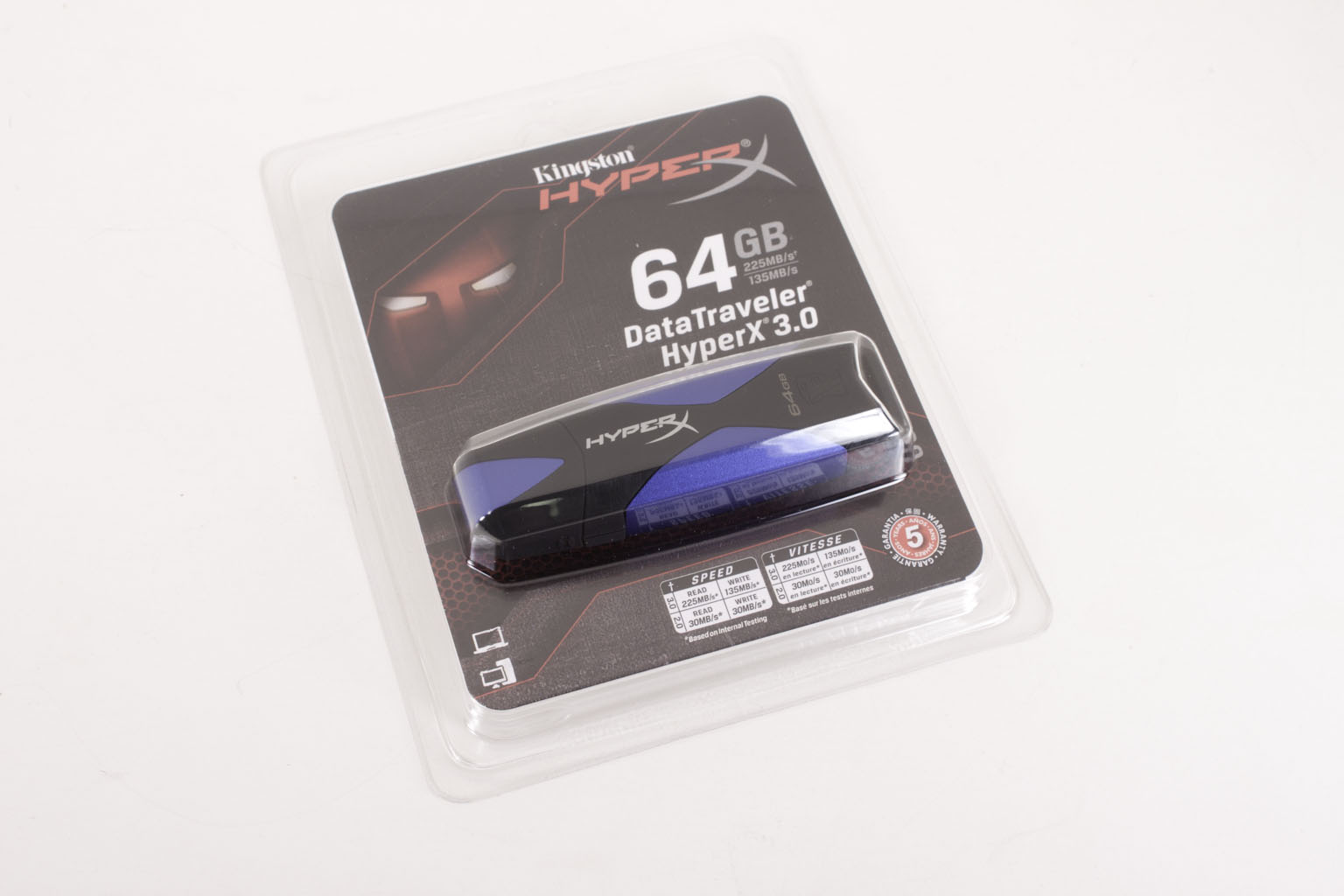 |
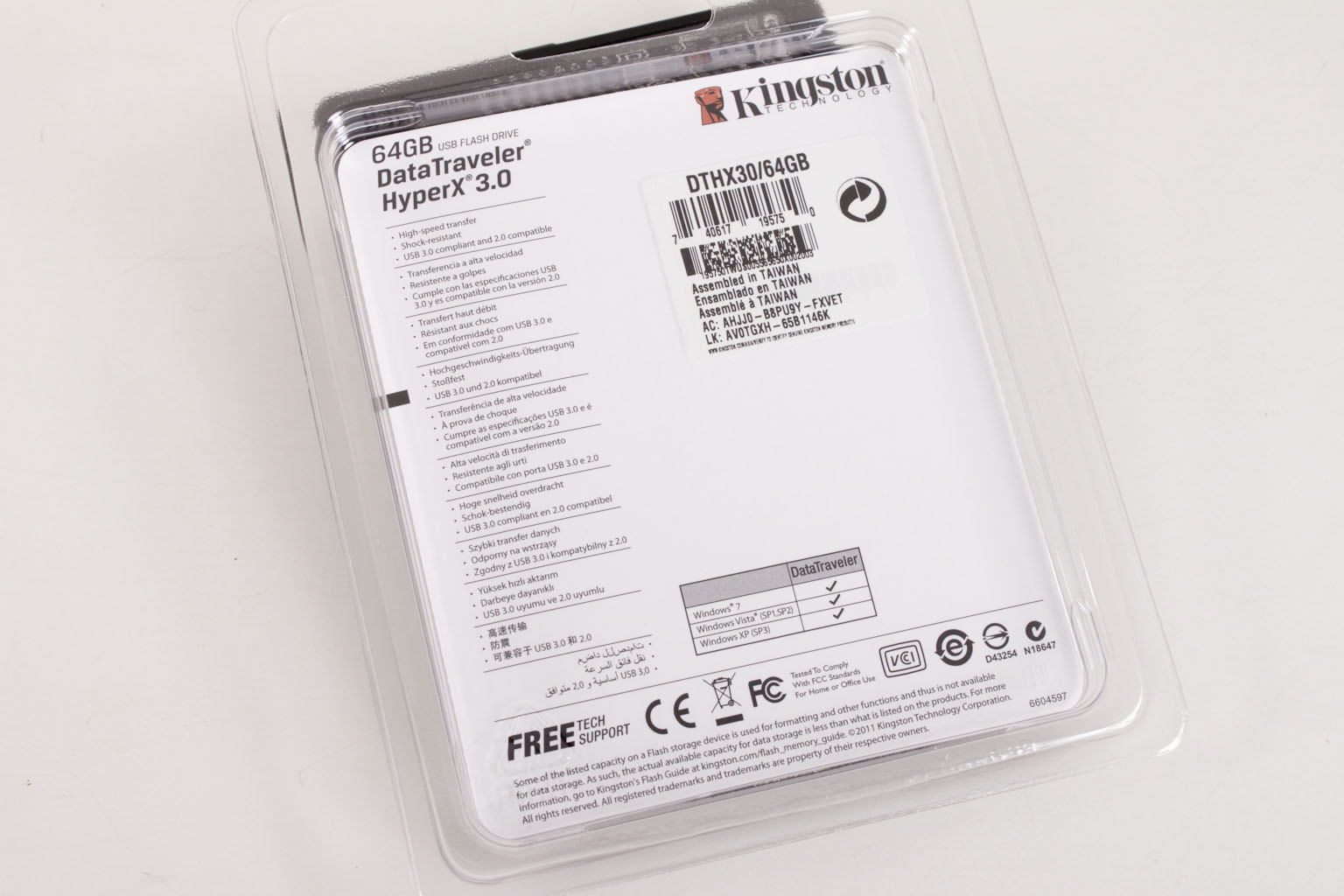 |
Once we carefully removed the outer shell, we found the same things inside as well. Nothing all that special to write about, but then again it is not the packaging that we are interested in anyway.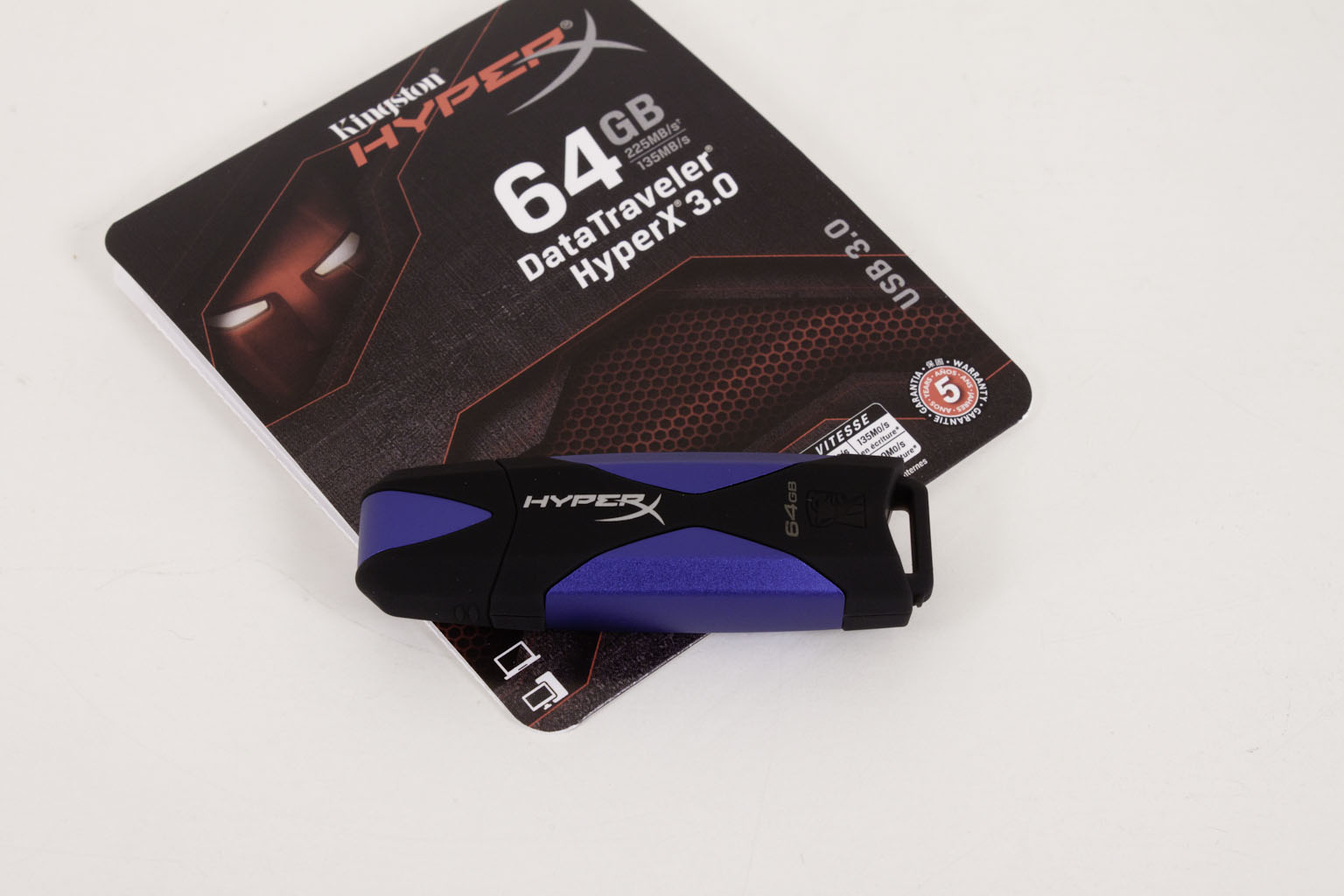
The Kingston Data Traveler HyperX 3.0 -
Although it does not look it, the DT HyperX 3.0 is just as large as the DTUltimate G2. Kingston has found a very clever way to disguise the size of this drive by angling the sides and also tapering the drive toward the front. This gives it an illusion of being smaller than the G2 and also makes it a little more attractive.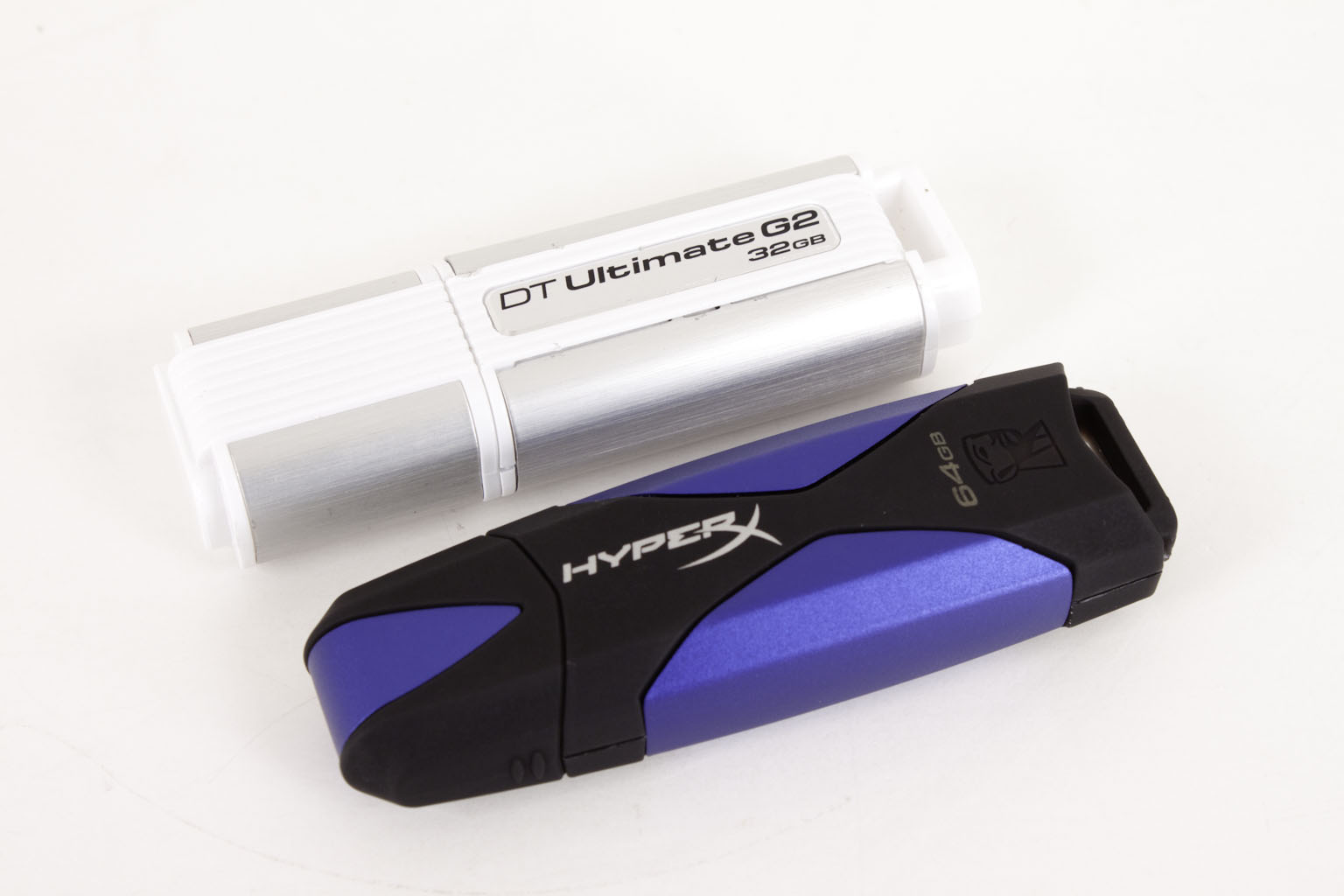
Kingston has also added in a couple of other visual effects to add to the appearance of the DT HyperX 3.0. They have used a matte black plastic that resembles a rubberized coating. The way this has been applied sort of resembles an “X” (in keeping with the HyperX theme) with glossy dark blue metal plates in the areas in between.
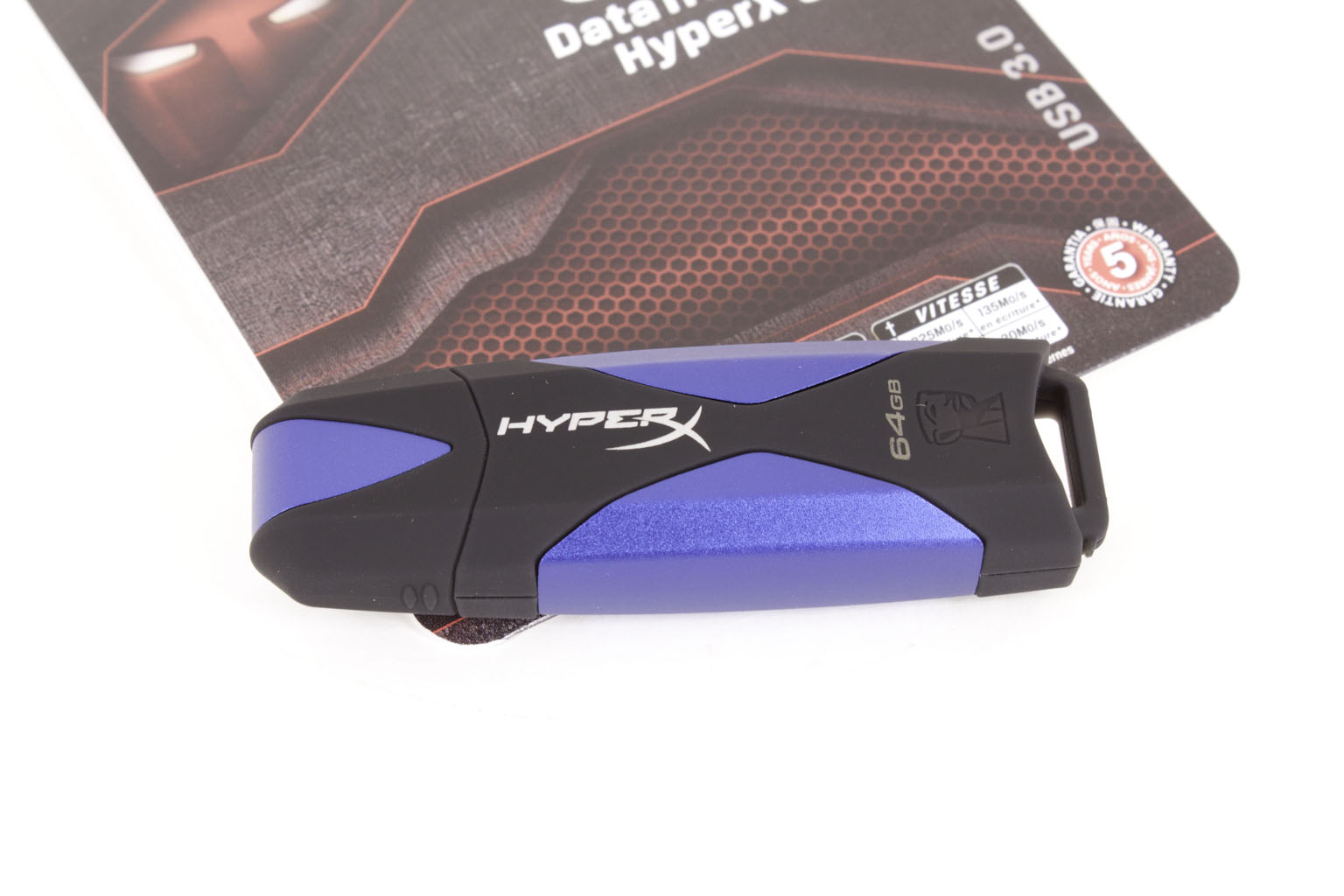 |
 |
Our disassembly of the DT HyperX 3.0 was much easier than it was with the DTUltimate G2. This time all we had to do was pull the metal plates off (they were only held on by adhesive tape) and then we were able to split the plastic casing with our thumbnail. From there we pulled out the meat of the drive and had a look at what was inside.
| Kingston DTUltimate G2 Controller | Kingston DT HyperX 3.0 Controller |
 |
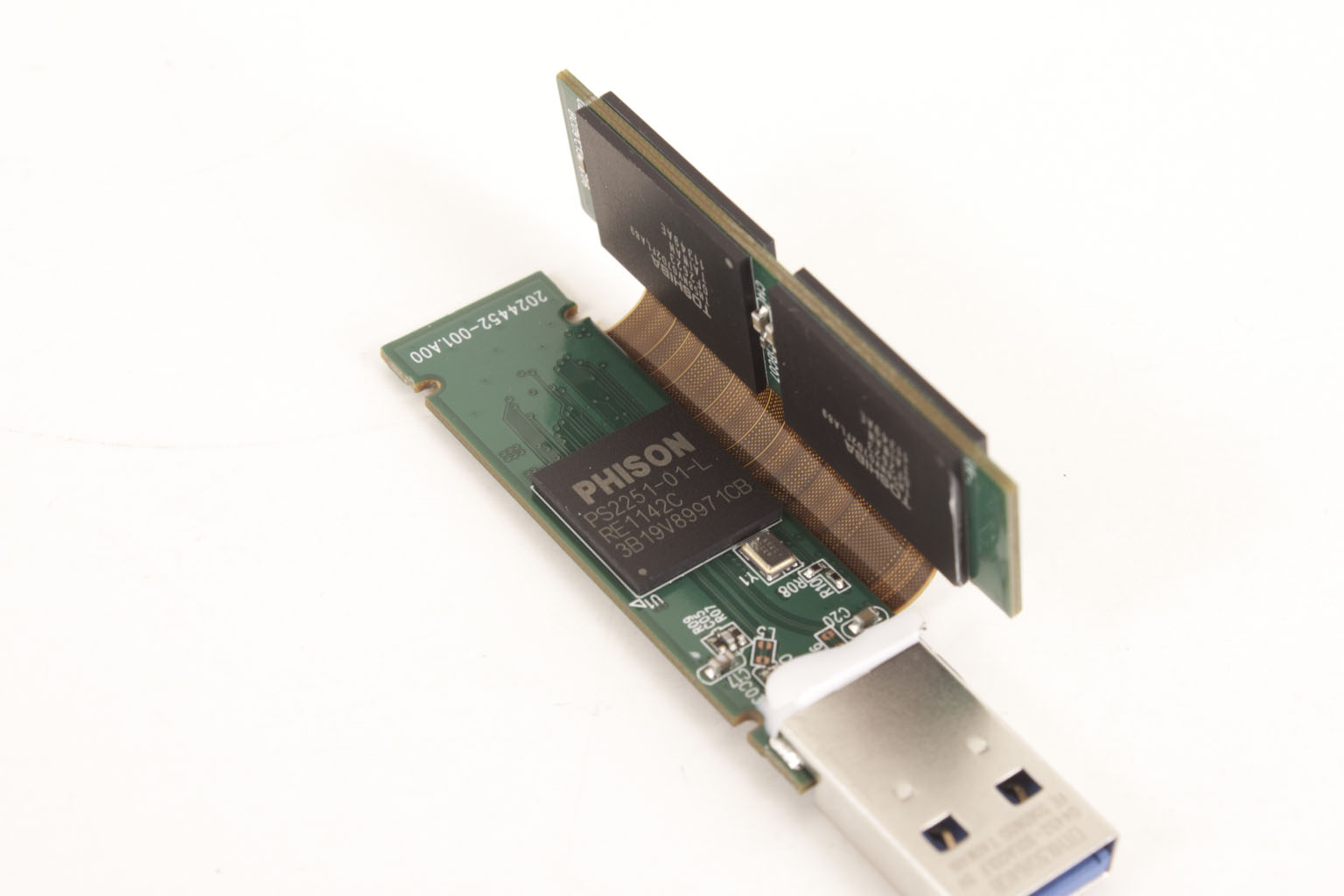 |
The DT HyperX 3.0 has a Phison PS2251-01-L which is similar to what we had with the DTUltimate G2. However, where the G2 has a 041CB revision the HyperX has an 1142C. From what we have been able to find out this is a greatly improved version of this controller. Another interesting design difference from the G2 to the HyperX 3.0 is the much larger ribbon cable. In the G2 there were two separate ribbon cables that connected the actual NAND flash to the controller PCB. Here there is a single cable that is thicker in addition to being wider than the two cables in the G2 combined. The Flash memory used is Toshiba TH58NVG7D2FLA80 32nm NAND Flash. Each of these has a 16GB capacity and is widely used in the industry. We have found these in everything from the iPad 2 to Smartphones to some competing SSDs. In short Kingston has made some very nice choices here for their top end USB 3.0 drive.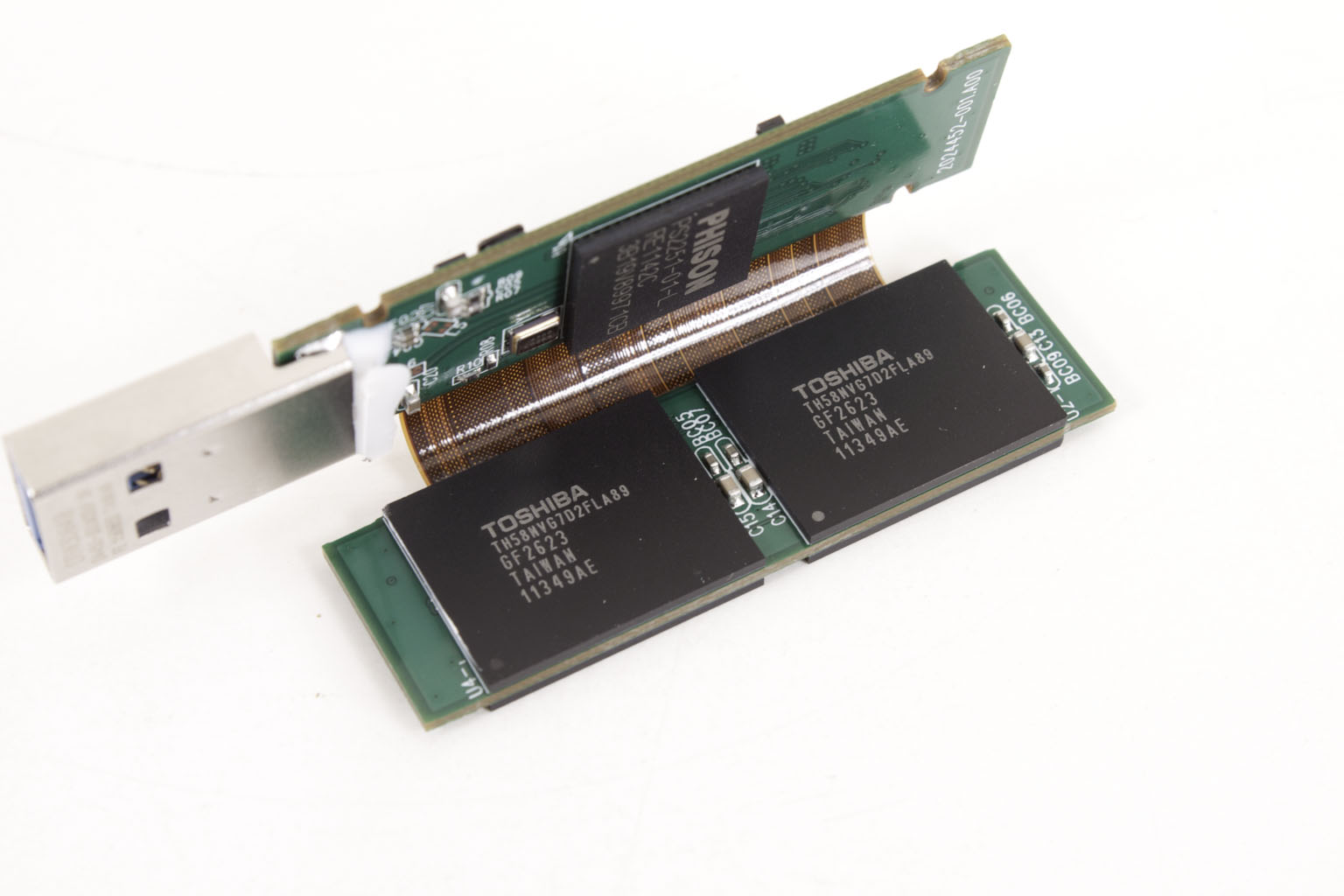
Performance -
Testing the performance of a drive of any type is a pain. Sure you can get repeatable numbers using a few of the more readily available testing utilities; HD Tach, Sisoft’s SANDRA, AIDA64, and others. For our testing we decided to run Sisoft’s SANDRA disk bench and the removable storage test to get our base numbers. Then we ran AIDA64’s disk benchmark to add in some extra information. We have already introduced the three of the competitors in the test so let’s introduce the last one the Seagate Black Armor PS-110 and then dive right in. 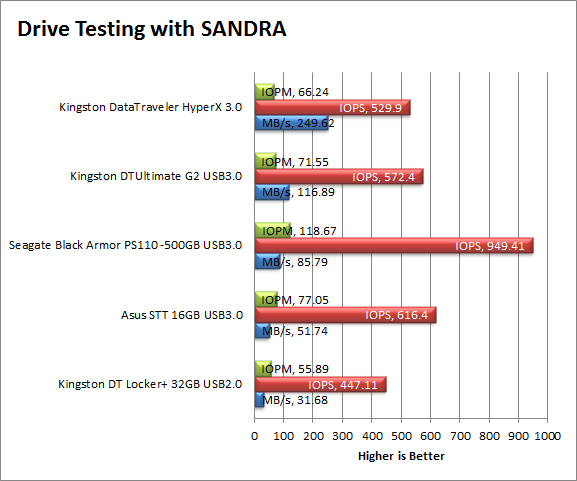
The performance numbers are VERY impressive. It is not often that we find the real world (ok synthetic) test data exceeding what is printed on the packaging. However, her we do see this. Kingston’s label lists a read speed of 225MB/s we consistently saw 245-252MB/s with an average of 249.62MB/s which is more than double the performance of the G2. 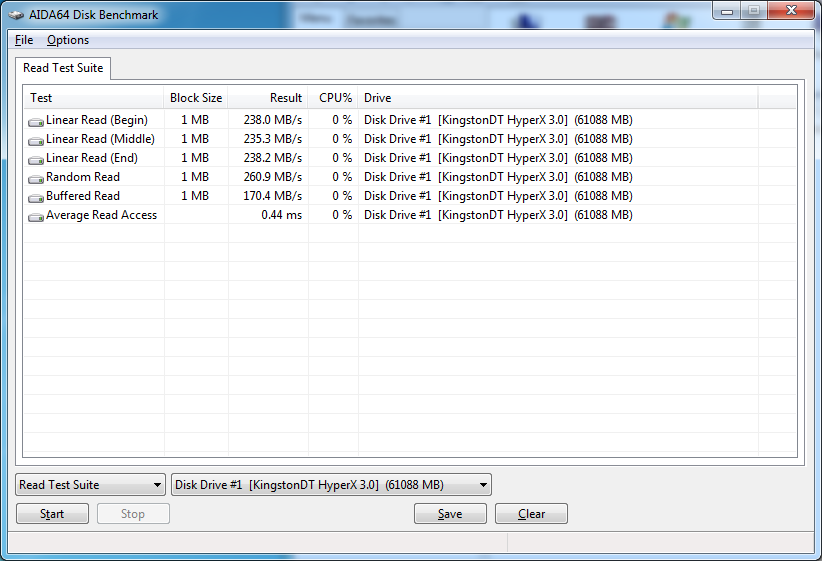
AIDA64 shows us pretty much the same thing but breaks it down into much smaller packet sets so you can see the performance at each data block size. Notice the max block size for each is different. The DT Locker + uses 128KB because it is also passing decryption data while it is running. The others are all based on the formats and sizes (capacity). Since most external drives are Fat-32 you will see a 32 KB block size used for testing, the NTFS (New Technology File System) will have 64 KB block size.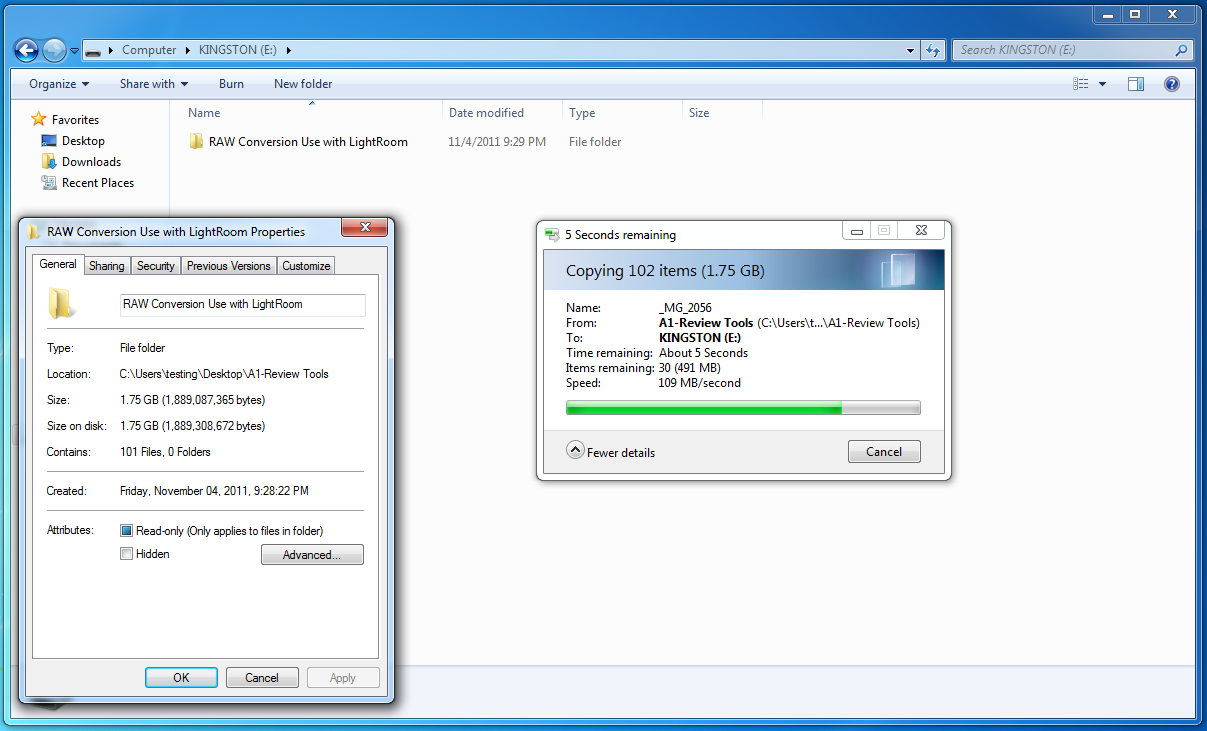
Like the G2 the HyperX 3.0 is very quick even when moving larger files; in fact it felt much faster than the G2. The down side is the formatting. It is formatted as a Fat-32 volume this means that you cannot put anything larger than a 2GB file on it. Not that big of a deal for most, however if you are looking to store image files (I keep OS and other software as Image files) you have to make sure they are less than 2GB in size. The other way to get around this (and by the way gain some performance) is to convert the whole volume to NTFS. If you are running Windows and have no intention to use this between operating system platforms then you would only gain from the re-format. After all the only reason these drives are formatted Fat-32 is for cross platform compatibility.
Value -
Value is another very subjective topic. What is expensive to some might be a deal to others. You can look at this topic in multiple ways. One is raw price and the other is what you get for the money. Each is accurate and both are correct ways to look at price/value. We tend to look at features, performance and real-property when we discuss value. However, we also take into account the raw cash cost of the item. If you can find the DataTraveler HyperX 3.0 you can expect to pay around $150 for the 64GB model (like the one reviewed here) and $250 for the 128GB version. These prices seem pretty high when looked first looked at. However, when we take a step back and see that we have a USB flash drive that is capable of speeds that match existing SATA II SSDs speeds then it is not that outrageous.
Conclusion -
The Kingston DataTraveler HyperX 3.0 is a great thumb drive. It does have some drawbacks though. The first is the formatting. While I know that Fat-32 is intended for compatibility across multiple platforms, it causes issues with the size of the files that can be stored on the drive. It also does hinder performance a little bit. The good news is that you can reformat the DT HyperX 3.0 to NTFS, or any number of file systems depending on your choice of operating system. Even with this issue (and one that is not limited to Kingston’s drives) we still can highly recommend the DT HyperX3.0 to anyone looking to some extra portable storage. Put simply, the HyperX 3.0 is ridiculously fast and has quite a bit of extra space for whatever you want to put on it.
Discuss this in our Forum



